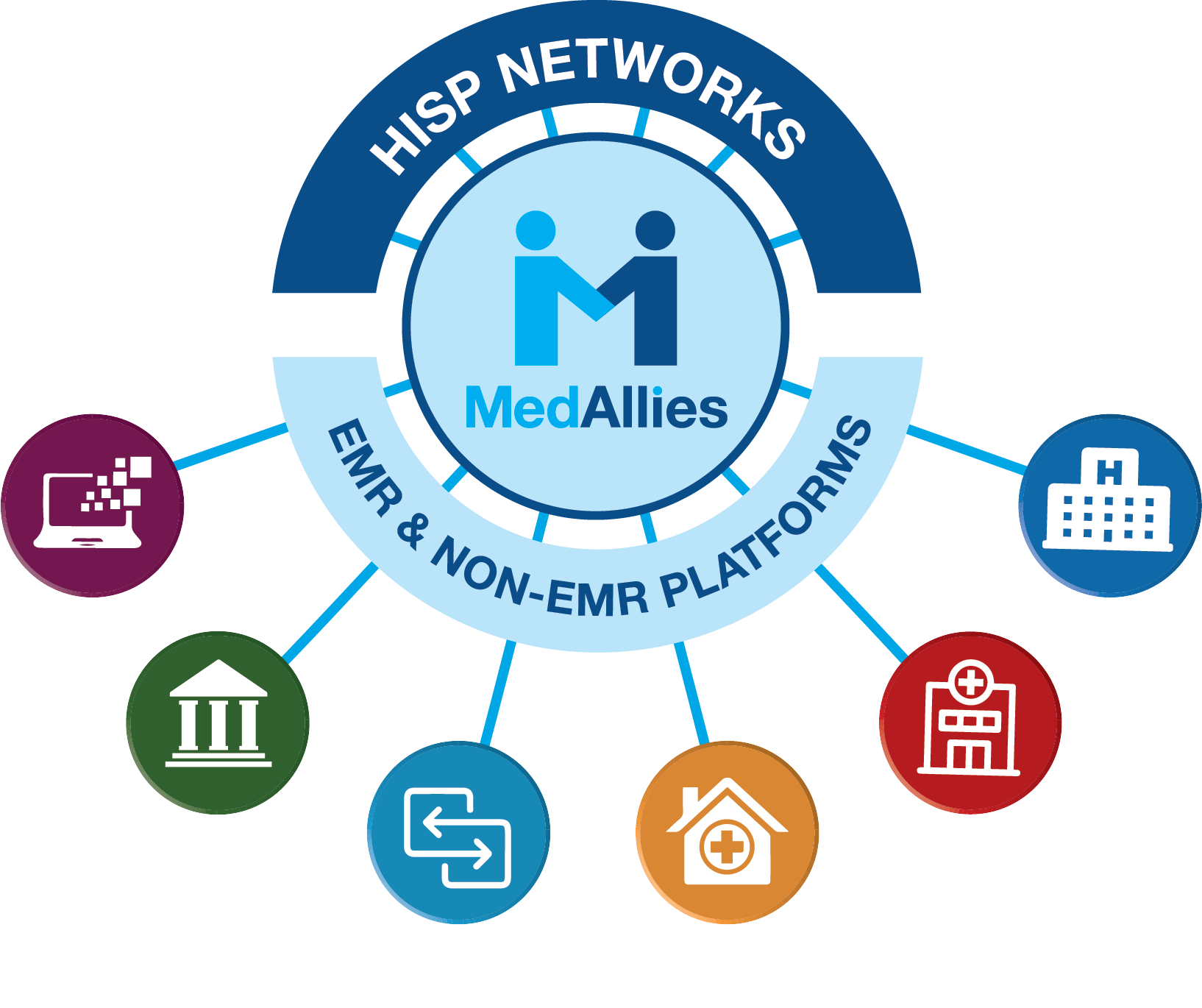Direct Network
Ensuring optimal edge system to edge system interoperability
Operating a National Direct Network
Launched in March 2013 as a part of the federal government’s Nationwide Health Information Network, the Direct Project was created to specify a simple, secure, scalable, standards-based way for participants to send authenticated, encrypted health information directly to known, trusted recipients over the Internet. Direct maintains health information flow, offering true interoperability.
Direct supports Merit-based Incentive Payment System (MIPS) Promoting Interoperability requirements – a set of standards and best practices adopted by CMS to ensure health care providers implement optimal push interoperability.

290
Organizations Served
Direct Network
What's Included
Clinical Direct Messaging
- Direct accounts operate exclusively on the Direct Network. The specialized digital certificate affixed to a Domain/Direct Address is recognized by Health Information Service Providers (HISPs) and can only be issued by an accredited HISP. The digital passport represented by the certificate makes Direct accounts unique. The Certificate also encrypts messages and confirms the identity of the sender and receiver, resulting in non-repudiation.
Direct Network Connectivity Options
- 21st Century ONC Certified HISP Options (XDR or S/MIME)
- For Non-ONC Certified applications, connect via our restful API
Identity Authentication
- Through our accredited certificate authority and registration authority all participants are identity proofed as required by NIST IAL2
National Provider Directory
- Published Direct Accounts
Digital Certificate Issuance
- MedAllies HISP manages, provisions and shares clients’ DirectTrust-authorized digital certificates
- Participation in the DirectTrust Accredited bundle
- Certificate issuance and registration authority
Message Delivery Notification
- Message completion acknowledgements collected and reported out by HISPs are considered to be irrevocable proof of message delivery and thus have legal weight and are used for CMS reporting.
Technical Support
- Online and phone support for onboarding, connectivity questions, and other service needs
- High-availability and disaster recovery
Use Cases Covered:
- Transitions of Care (ToC)
- Clinical Messaging
- CoP ADT e-Notifications
- Electronic Case Reporting (eCR)